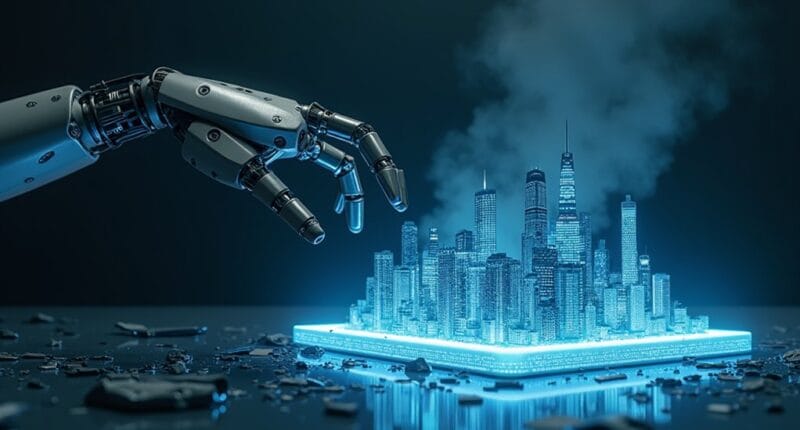Recent data shows AI’s explosive disruption potential, with 27% of jobs facing high automation risks by 2025 and two-thirds of all occupations vulnerable to partial automation. While tech companies rake in billions – U.S. private AI investment hit $109.1 billion – public trust remains shaky. A staggering 76% worry about AI misinformation, and 70% don’t trust companies to make responsible AI decisions. This disconnect between Silicon Valley optimism and public anxiety signals deeper troubles ahead.

While tech evangelists paint rosy pictures of an AI-powered future, the numbers tell a more sobering story. A staggering 27% of jobs face high automation risks by 2025, and two-thirds of all occupations could be partially automated. That’s 300 million jobs worldwide potentially on the chopping block. No wonder 63% of people are freaking out about AI taking their jobs in the next decade. Recent data shows that businesses using AI have seen a 12% performance boost over their competitors.
Forget the AI hype – when robots threaten 300 million jobs worldwide, it’s no surprise most workers are losing sleep.
The public’s trust in AI is about as sturdy as a paper airplane in a hurricane. A whopping 76% of consumers worry about AI-generated misinformation, while 83% of Americans are nervous about AI-driven vehicles. Who can blame them? Even medical advice from AI makes 80% of Americans uneasy. The FDA has approved 223 AI-enabled medical devices in 2023, a dramatic increase from just six in 2015.
And here’s the kicker – 70% of Americans don’t trust companies to make responsible AI decisions. Shocking, right?
Global attitudes toward AI are split like a philosophical banana split. While China, Indonesia, and Thailand are practically throwing AI acceptance parties with approval rates above 77%, Western nations are considerably more skeptical. The United States sits at a mere 39% optimism rate, with Canada and the Netherlands showing similar reluctance.
Money talks, and in AI, it’s screaming. U.S. private AI investment has exploded to $109.1 billion in 2024, dwarfing China’s $9.3 billion and making the U.K.’s $4.5 billion look like pocket change.
Meanwhile, AI is getting cheaper and more accessible – inference costs have plummeted by 280-fold in just two years. Great news, except for one tiny detail: training these models is guzzling water like a camel after a desert marathon, with ChatGPT alone using 3.5 million liters for cooling.
The education sector isn’t immune to this AI upheaval either. Parents are stuck in a classic love-hate relationship with AI in education – 54% see potential benefits, but 80% harbor serious concerns about harmful effects.
It’s like wanting to give your kid a fancy new toy while worried it might explode. Welcome to the brave new world of AI, where progress and paranoia walk hand in hand.




